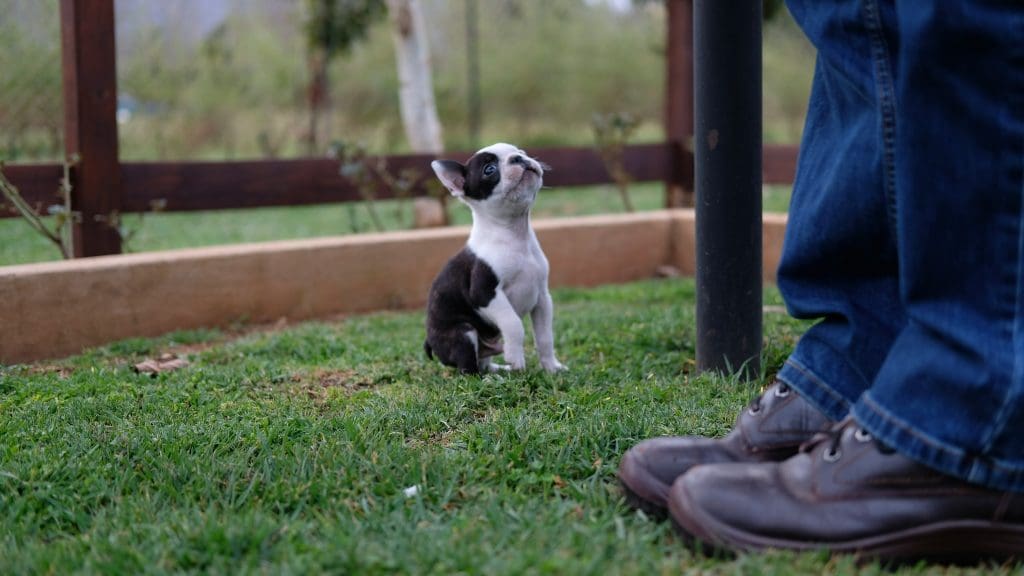The Health Perks of Potty Training Your Puppy
Potty training your puppy is often thought of in terms of convenience—keeping your carpets clean and your home smelling fresh. But beyond that, there’s a deeper, more important reason to take it seriously: your puppy’s health. Proper house training helps create a cleaner, safer, and healthier environment for both your pet and your family.
Let’s take a closer look at the many health-related benefits of successfully potty training your new best friend.
Reducing Exposure to Harmful Bacteria
Puppy waste—especially feces—can carry bacteria, viruses, and parasites such as E. coli, Giardia, and roundworms. When puppies eliminate inside the home, especially on carpets or rugs, these pathogens can linger and multiply.
Even with cleaning, small remnants can stay behind, increasing the risk of illness for both your dog and the humans in the household. Housebreaking your puppy ensures waste is disposed of outdoors, away from common living spaces, which greatly reduces these health hazards.
Preventing Urinary Tract Infections (UTIs)
Holding urine too long or eliminating in unsanitary places can increase the risk of urinary tract infections in puppies. These painful infections can cause discomfort, behavioral changes, and more frequent accidents.
When your puppy is on a consistent potty schedule and knows to relieve themselves outside, they’re less likely to “hold it” for extended periods or eliminate in dirty or inappropriate places—both of which reduce the chance of infection.
Encouraging Regular Elimination
A solid potty training routine supports your puppy’s digestive health. Dogs that go out at consistent times every day develop better control and more regular bowel movements. This makes it easier to identify any potential problems, like diarrhea, constipation, or worms, early on.
A dog who eliminates sporadically, or in secret corners of the house, makes it harder for owners to spot warning signs that something’s wrong. Potty training keeps this vital health indicator visible and trackable.
Supporting Safe Crate Training
Many owners use crate training as part of the potty training process. Since dogs naturally avoid soiling their sleeping area, crate training helps teach bladder control and reinforces the idea of designated potty areas.
A properly sized crate gives your puppy a safe, cozy space while also preventing them from developing bad habits like eliminating on the floor or behind furniture. This dual-purpose approach supports both mental and physical wellness.
Keeping Paws and Skin Clean
Puppies who eliminate indoors often step in or lie down near their own waste. Over time, this can lead to irritated paws, skin infections, or mats in the fur—especially for long-haired breeds.
Potty training helps avoid these messes entirely. By consistently going outside, your puppy avoids contact with urine or feces, keeping their coat, skin, and paws clean and healthy.
A Cleaner Environment for Children
If you have children in the home, housebreaking your puppy is doubly important. Young kids may crawl on the floor or touch areas where a puppy had an accident. Potty training protects everyone in the home—especially the most vulnerable—from exposure to pet waste.
This cleanliness also helps reduce allergens and improves the overall hygiene of your shared living space.
Reducing Stress for the Puppy
Accidents inside the home can cause your puppy stress—especially when they’re scolded or punished. Too many negative experiences around bathroom behaviors can cause anxiety, submissive urination, or regression.
By establishing clear routines and using positive reinforcement, potty training creates a sense of predictability and security. This reduces stress and promotes overall emotional and physical well-being for your puppy.
Fewer Vet Visits for Avoidable Illnesses
Proper potty habits can save you money and worry by helping your puppy avoid unnecessary trips to the vet. Infections, skin irritations, and digestive issues caused by poor hygiene can often be prevented through consistent house training and routine outdoor breaks.
While some health issues are unavoidable, potty training can significantly lower the risk of preventable ones.
Final Thoughts
Potty training is more than a housecleaning strategy—it’s a vital part of your puppy’s health and wellness plan. By encouraging clean habits, regular routines, and safe hygiene practices, you’re giving your puppy the tools they need to thrive.
From preventing infections to protecting your home from harmful bacteria, a well-trained puppy is a healthier puppy. So grab your leash and a few treats—it’s time to go outside for your dog’s sake and yours.


